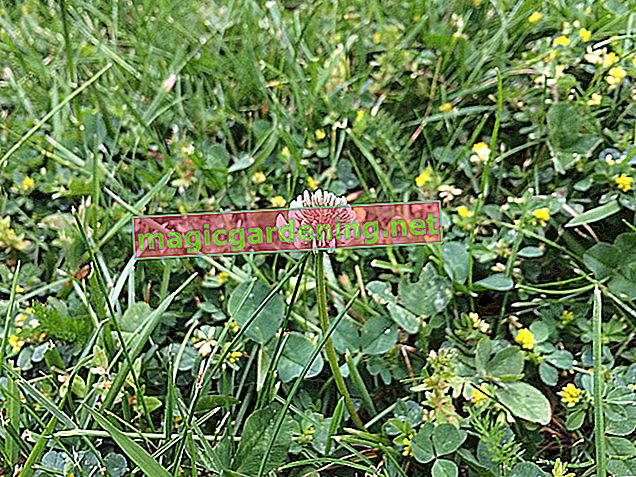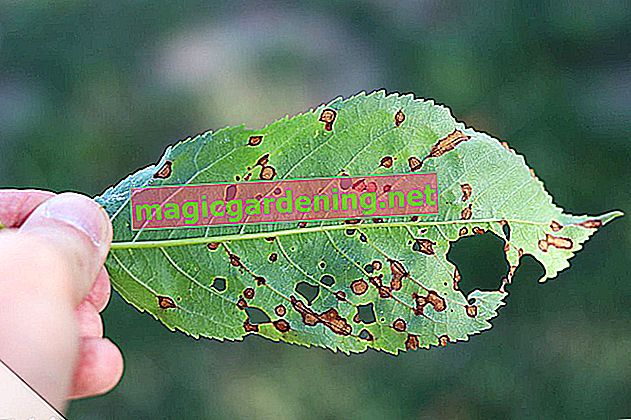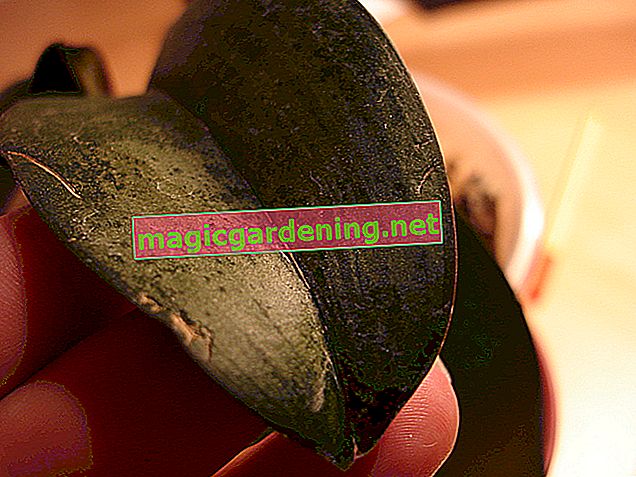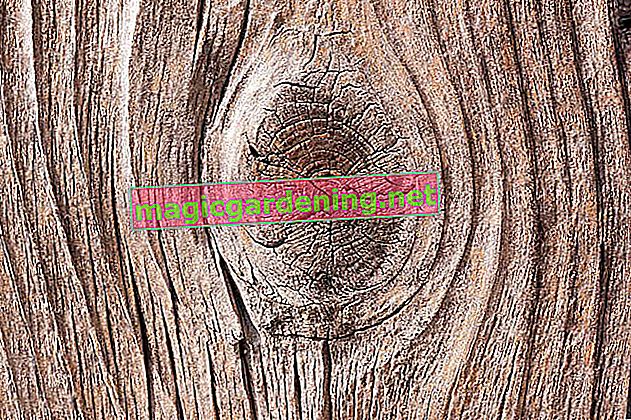
the essentials in brief
- Driving strange cats off the property is not illegal as long as the animals are not harmed.
- Effective home remedies for chasing away cats are essential oils, pepper, coffee grounds, orange-vinegar spray, and plants with an intense odor.
- Efficiently driving cats out of the garden can be achieved with mechanical / physical methods such as ultrasound, whistle, water jet and cat fright.
Is driving away cats illegal?
In Germany all living beings have a documented right to security. This basic right does not mean that strange cats are allowed to spoil your garden with stinking excrement, that the plants lie flat in beds and that bad smelling markings are made everywhere. After all, the right to peace in the house is enshrined in the Basic Law, which includes the entire property. Because of this, it is not illegal for you to evict the culprits from the property. As long as you use gentle deterrents and do not harm the animals, you can chase strange cats out of the garden.
also read
- Are there any effective remedies for ivy?
- Driving away flies - effective methods and fallacies
- Driving away mosquitoes: proven means and new knowledge
Driving cats out of the garden - how does it work?

If strange cats are up to mischief in the garden, affected hobby gardeners are plagued by ambivalent feelings. Ransacked beds, smelly cat droppings and foul-smelling urine are not to be tolerated. On the other hand, the furry evildoers should not be harmed because they follow their natural instincts. Animal-friendly agents are the best option when you want to get rid of cats effectively. The following table lists the 15 best means and methods to drive strange cats off the property:
| Home remedies | plants | Mechanical / physical means |
|---|---|---|
| essential oils | Fuck off plant | Water jet |
| Pepper / chilli | Lemon balm | Ultrasonic |
| garlic | Rue | Cat granules |
| Coffee grounds | Barberry ground cover | Whistle |
| Orange vinegar spray | Holly | Cat fright |
Did one or the other method spark your interest? Then please read on, because the following sections explain the correct application in detail.
Tips
Feeding places for hedgehogs are a real magnet for cats in the garden. If you are feeding hedgehogs in winter or spring, please serve the food in a cat-safe bird feeder. Intelligent cats quickly find out that the table that has been laid is far away and they look for the distance.
Drive away cats with home remedies - tips & tricks
In the natural garden, home remedies are the first choice as problem solvers. Hobby gardeners prefer to use natural means to combat plant diseases and pests, and to scare away uninvited guests. If you want to drive away strange cats from the property effectively, the following non-toxic agents have proven to be excellent in practice:
Essential oils

Cats have a sensitive sense of smell for the sensory examination of possible prey and other animals. Fine cat noses are, however, also an open flank for targeted attacks with intense smells in order to drive the unwanted quiet step away from the property. How to chase away strange cats with essential fragrances as a spray:
- Buy tea tree oil, lemon oil or eucalyptus oil in the drugstore
- Prepare a solution from 10-20 drops of essential oil, 100-200 ml of water, 1 shot of grain as an emulsifier
- Pour the solution into a spray bottle, shake it vigorously and spray on suspicious spots in the bed and garden
- Please note: never spray cats repellent sprays directly on the animals
It is important to note the use of an emulsifier so that the oil and water mix well. Instead of grain, you can use other high-proof alcohol from 40% vol. Add another teaspoon of baking soda to neutralize any cat odor that may attract more cats. The downside of the coin is that you have to freshen up the scent from essential oils after every rain shower so that the expulsion effect is retained.
Pepper and chilli
As a home remedy for uninvited cat visits, pepper and chilli are in the same vein as essential oils. The spice powders with an extra hot note attack sensitive cat noses without causing permanent damage. Sprinkle pepper or chilli everywhere where marking cats have left their stench or where you struggle with cat feces in the bedding soil. Rain and irrigation water wash away the granules. Regular sprinkling is indispensable for complete effectiveness.
garlic
Garlic is an effective way of driving cats out of all beds. Put the cloves of garlic in the soil with the point up. In the sunny, warm location, the plants thrive splendidly and give off their characteristic smell. The scent of garlic has a stink bomb effect on invading cats, which makes them run away in disgust. A beneficial side effect of the garlic method is a rich harvest of aromatic tubers for very healthy dishes.
Coffee grounds
Hobby gardeners who are close to nature do not throw coffee grounds into the garbage can. The dried remains of the last coffee break end up as a valuable ingredient on the compost or serve as a natural nitrogen fertilizer for free. Garden owners are less familiar with the fact that cats loathe the smell of coffee grounds. Let the contents of the filter bags dry to prevent mold from forming. Scatter the grain in beds and on suspicious walkways. Incidentally, coffee grounds not only drive away unpopular cats, but also keep voracious snails off your plants.
Orange vinegar spray

The smell of oranges and vinegar is anathema to cats. Reason enough to make a cat repellent spray from both ingredients. Instead of buying expensive orange oil, you can buy fresh oranges, enjoy the delicious pulp and boil the peels in water. The following recipe makes a repellent spray that will successfully keep cats off the property:
- Put 500 ml of water in a saucepan
- Add 400 g to 500 g orange peel (alternatively lemon peel)
- Bring to the boil, stirring constantly
- Simmer on a low flame for 20 minutes
- Take the boiled orange peel out of the water with a ladle
Add a good dash of vinegar or apple cider vinegar to the concentrated, cooled orange water. Pour the mixture into a spray bottle and shake vigorously. The repellent spray is suitable for all unplanted garden areas from which you want to drive cats away effectively. The solution works in two ways. On the one hand, existing odors are masked by cat feces and urine. On the other hand, a scent that is bad for cats' noses covers the treated area, which they avoid in the future with disgust. Contact with lawn, flowers or vegetables should be avoided due to the vinegar it contains.
The effectiveness of these home remedies is enhanced by a combination with other natural defense measures. If the right plants thrive on the property line, surrounded by ethereal fragrances and coffee grounds on the root disc, your garden will become a forbidden zone for strange cats. Please take a look at our top 5 best plants that will successfully drive cats away. The following section is dedicated to the individual cat defense plants with tips on important site conditions.
Digression
The smell of dog hair drives cats away from the car
Sharp cat claws wreak havoc on car paintwork. Cats like to sit on the bonnet and roof of the car to enjoy the sun. The seat becomes uncomfortable for kitties with an unpleasant smell of dog hair. With the smell of the most important opponent in your nose, you can't just chill out. Therefore, collect dog hair and fill the woolly yield into disused nylon stockings that you attach to the car. In addition, rub the car with lemon oil.Which plants chase away cats? - Top 5
Different plants have specific properties that cats can't stand. The spectrum ranges from unpleasant smells to needle-sharp thorns. The table above lists the top 5 by name, which deserves the predicate cat protective wall. What distinguishes the recommended plants as a floral bulwark against cats is examined in more detail below:
Piss off plant (Plectranthus ornatus)
A piss-off plant keeps what its rough name promises. The wonder plant comes from the genus of the harp bushes and thrives as an evergreen subshrub. Her steep career as a natural cat repellant began in 2001. At that time a Swabian breeder found out that cats, dogs and martens run away from the distinctive smell of menthol. Unfortunately, a harp shrub is not hardy. You can choose to cultivate piss-off plants in pots, which you set up on the property, terrace and balcony, or you can dig up planted specimens to overwinter them frost-free behind glass.
- Growth height: 40 to 80 cm
- Spread: 20 to 60 cm
- Flowering period: June to October
- Location: sunny to partially shaded in nutrient-rich, fresh, moist soil
Lemon balm (Melissa officinalis)

Lemon balm has a reputation for being extremely unpopular with strange cats with its incomparable scent. The reason for this are toothed, soft leaves, through which essential oils flow. Cats find it difficult to bear what human noses like very much. Lemon scent in every form has the potential to drive away annoying kitties effectively. Hobby gardeners also benefit from a tasty herb harvest in the form of the wonderful lemon balm.
- Growth height: 50 to 100 cm
- Spread: 30 to 80 cm
- Flowering period: June to August
- Location: sunny to partially shaded in loamy-sandy, stony soil
Rue (Ruta graveolens)
As an anti-cat plant, the rue is a hit. Behind a subtle look, the historical culinary herb hides a concentrated load of essential oils that treat sensitive fur noses with an intense smell. Should hardened, wild cats ignore the smell, there are still defensive bees and bumblebees. Yellow rue flowers are bulging with sweet nectar and a swarmed bee pasture. A furry troublemaker will feel the sharp spikes of the angry insects.
- Height: 30-50 cm
- Spread: 30-50 cm
- Flowering period: June to August
- Location: sunny with normal garden soil
Barberry ground cover
If you are in a clinch with strange cats and annoying weeds at the same time, the barberry comes in handy. The ornamental shrub owes its nickname organic barbed wire to the fearsome thorns. It is obvious that with a ground cover made from barberry you do not have to fear any strange cats in the garden. The evergreen cushion barberry (Berberis candidula 'Jytte') and the more compact cushion barberry (Berberis buxifolia 'Nana') fulfill their task as cat-repellent ground cover to perfection.
- Height: 30 to 80 cm
- Spread: 100 to 150 cm
- Flowering period: May to June
- Location: sunny to shady in normal garden soil
Holly (Ilex meserveae)
The holly plays in the top league for a defensive hedge to protect the property from animal intruders, such as strange cats, stray dogs, wild martens and cheeky raccoons. A dense thorn dress that covers the shoots and leaf edges is characteristic of the holly. The 'Heckenfee' variety, which boasts pointed spines, pretty flowers and bright fruit decorations, is very popular among garden owners who are afflicted with cats.
- Growth height: 150 to 300 cm
- Spread: 60 to 150 cm
- Flowering period: May and June
- Location: sunny to partially shaded, nutrient-rich, well-drained garden soil
Mechanical cat repellants - these tools work
The proverbial fear of water cats can use against them. Subsequent targets for gentle repellants are their fine hearing, sensitive paws and terrible disposition. What the above overview announces as mechanical / physical cat defense is examined in more detail below:
Water jet and cat fright

A water pistol at hand is not only useful as a pigeon scare. The targeted water jet also chases away brazen cats in no time. If you don't want to lie in wait continuously to catch strange cats in the act, you can install a circular sprinkler with motion detector on the lawn. Cats are not only afraid of water, they are also resentful and easily offended. The fur noses no longer forget the rough and wet welcome. With cat deterrent devices such as the Celaflor garden guard, there are good prospects of keeping wild cats away from the property permanently.
Ultrasonic
Cats have it tough. In fact, the large, pointed auricles protect hearing that is among the best in the mammalian realm. If ultrasonic waves hit the highly developed sense of hearing, the cat perceives these high-frequency sounds as an unbearable din. For humans, however, the tones cannot be heard. Effective ultrasound devices have a motion detector and ideally solar power. A disadvantage is that the range is usually limited to a radius of around 10 meters. This weak point does not remain hidden from the clever animals for long, so they simply wander around the painful source of noise at a respectful distance.
Cat granules
There are various means behind the term cat granulate. What they all have in common is the intention of effective expulsion from the beds in the garden. Cat granulate can be considered as the agent of choice wherever other methods cannot be used or are doomed to failure from the outset. The following variants turned out to be effective in the test:
- Cat granules as a barrier: mulch beds with pine needles, sharp stones or small-grain lava granules
- Cat granules as an odor barrier: buy ready-to-use granules (e.g. from Neudorff) and distribute in beds
You can make cat granules yourself as an odor barrier. Products from specialist retailers are based, among other things, on the scent of garlic and onion. Cut garlic cloves and kitchen onions into pieces that you mix together and sprinkle regularly in high-traffic cat locations around the property.
Whistle
A handy whistle fits in every pocket. The pipe is quickly at hand when a stray cat appears in the garden. Trill once vigorously and the impudent intruder is looking for the distance. With a little luck, the immediate effect will result in permanent expulsion. Cats have an ingenious ability to learn and remember. Where a kitty has once been scared into the limbs, she will go a long way in the future.
Make your garden cat-safe - this is how it works

Driving away cats effectively is a test of strength with sophisticated, furry intelligence beasts. Most of the means and methods require a high investment of time and / or money. By making your yard cat-safe, you avoid the nerve-wracking and costly conflict. How to prevent uninvited cats visiting your property:
- * Plant a hedge *: Enclose the plot with 180 to 200 cm high, thorny bushes
- * Fence *: Enclose the garden with a wooden fence without climbing aids for cats
- * Protect wall crowns *: attach smooth plastic pipes to low garden walls to prevent them from being hit
Take a look at your garden through a cat's eye. Be on the lookout for cozy berths, inviting scratching areas and potential toilet spots. A sandpit cover, planting with ground cover, mulching with gravel or spruce cones make your property much less attractive to strange cats.
frequently asked Questions
Can cats drive away martens?
Martens and cats avoid each other. The two know exactly: a balanced balance of power makes every fight a life-threatening risk for each side. From this point of view, cats can drive away martens and vice versa. In the end, either the cat or the marten will declare the property a territory.
We have hung nesting boxes for birds in the trees on our property. Is there an effective way to prevent cats from attacking birds?
If a strange cat has sensed possible prey, gentle repellants will not work. Defensive smells, ultrasonic noises and even a jet of water will not prevent the hungry predator from hunting. The feathered young in the nest box (8.76 € at Amazon *) is not doomed if the tree trunk is equipped with a cat repellent belt. This is a spiked band that you mount on the trunk above head height. So the cat can neither climb into the air nor jump over the defensive belt.
Is a cat fence suitable to keep strange cats out of the garden?
The aim of a cat fence is actually to prevent your own cat from leaving the property. It is a stable net in different designs that is stretched between brackets. This concept should theoretically be suitable for preventing strange cats from entering the property. This construction is frowned upon by animal lovers, because a cat fence is under low current.
Tips
Upholstered garden furniture is a welcome resting place for wild cats. Lolling once and for all is enough to dirty the valuable fabric upholstery with stubborn cat hair. Cover the seating furniture with aluminum foil after each use. The uncomfortable crackling and the cold, smooth surface will scare away any strange cat, never to be seen again.








